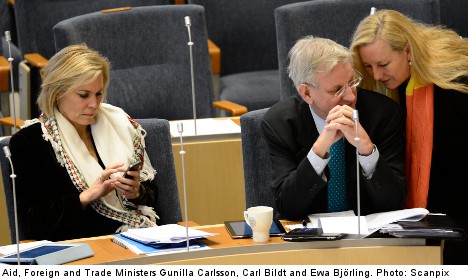“I think that it is important for anyone who has been involved in the issue that the legal community has taken a stand and that we receive confirmation that the convention’s support for human rights apply in practice,” said Kerstin Burman, lawyer at the rights organization Diskrimineringsbyrån, in a statement.
The verdict follows the appeal from a Swede opposing the demand for sterilization from the Swedish National Board of Health and Welfare (Socialstyrelsen) in order to legally change sex from female to male.
According to political journal Riksdag & Departement, the court ruled that mandatory sterilization is a forced physical procedure and goes against the right to privacy in the European Convention.
“This is positive for our client. I am very happy. Now it will be interesting to see how the National Board of Health and Welfare will act,” said Burman to the paper.
According to legislation passed in 1972, to undergo a sex change operation a person must be over 18-years-old, a Swedish citizen, be sterilized and unmarried.
In the proposal for new legislation, to be presented by the government this spring, the conditions that sex change candidates are unmarried and Swedish citizens would be dropped, according to TT. But not the sterilization condition.
The matter has sparked a heated debate both in the Riksdag and among the parties of the centre-right Alliance government, with the Moderates and The Liberals (Folkpartiet) arguing the clause was obsolete.
Against them stood the Christian Democrats, but after some deliberation the party fell into line with their coalition partners.
The court now ruled in favour of the claimant, saying that his sex will be considered male, despite not agreeing to sterilization.
”I can hardly believe it is true. It is a great victory in a question that will have an impact on a great number of people,” said the man in a statement.
The Local/rm


 Please whitelist us to continue reading.
Please whitelist us to continue reading.
Member comments